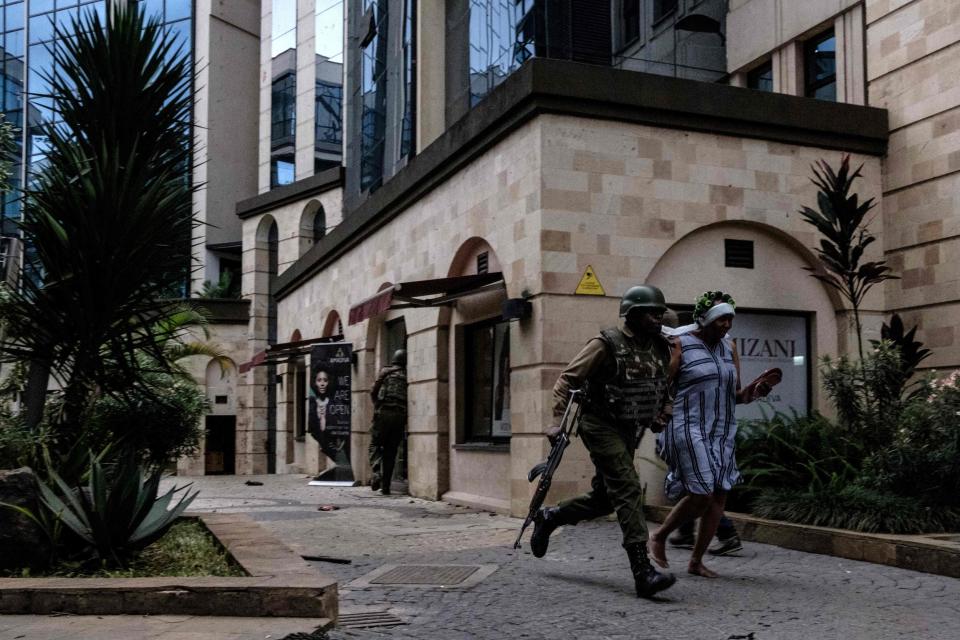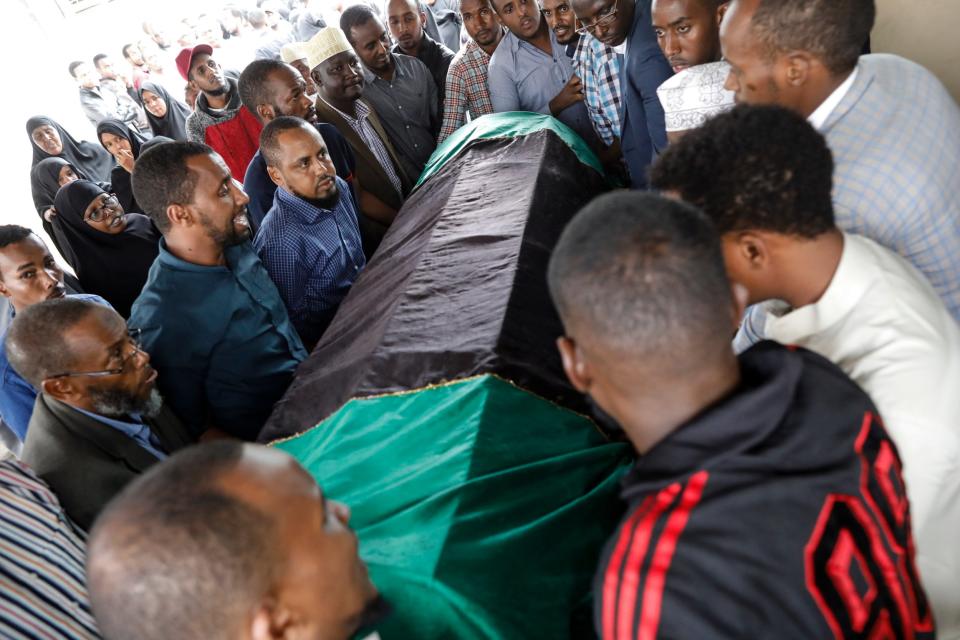Jason Spindler: US victim of Nairobi attack had brush with 9/11 tragedy, father says as death toll rises to 21
An American man killed during an attack by gunmen on a luxury hotel complex in Nairobi had a brush with the 9/11 tragedy, his father said as the death toll rose to 21.
Jason Spindler, co-founder and managing director of San Francisco-based I-DEV International from Houston, was killed at the DusitD2 complex on Tuesday.
It has now emerged that Mr Spindler was employed by a financial firm at the World Trade Center at the time of the 2001 terrorist attack but was running late that morning.
He was coming out of the subway when the first tower fell and became covered in dust and debris as he tried to help others, his father Joseph Spindler said.
Police have announced that the death toll after al-Shabab gunmen opened fired on Tuesday in Nairobi has climbed to 21, plus the five militants killed.
The number of those killed rose with the discovery of six more bodies at the scene and the death of a critically wounded police officer the following day.
Joseph Boinnet, inspector-general of Kenyan police, said 28 people were hurt and taken to hospital.
In an earlier address to the nation on Wednesday, President Uhuru Kenyatta announced that the all-night operation by security forces to retake the complex was over.
"We will seek out every person that was involved in the funding, planning and execution of this heinous act," he vowed, adding that all extremists who targeted the complex had been killed.

In an attack that demonstrated al-Shabab's continued ability to strike Kenya's capital despite setbacks on the battlefield, extremists stormed the place with guns and explosives.
CCTV footage released showed a suicide bomber blowing himself up in a grassy area in the complex, the flash visible along with smoke billowing from the spot where he had been standing.
One of the civilian victims killed in the mass shooting included British charity worker Luke Potter, who had worked for international charity Gatsby for ten years.

Of the other civilian casualties, 16 were Kenyan, one was American and three were of African descent but their nationalities were not yet identified, police said.
Al-Shabab, which is based in neighbouring Somalia and allied with al-Qaida, claimed responsibility.
The Islamic extremist group also carried out the 2013 attack at Nairobi's nearby Westgate Mall that killed 67 people, and an assault on Kenya's Garissa University in 2015 that claimed 147 lives.
The bloodshed in Kenya's capital appeared designed to inflict maximum damage to the country's image of stability and its tourism industry, an important source of revenue.

The government said late Tuesday that buildings were secure. However, gunfire continued into Wednesday morning, and dozens of trapped people were rescued overnight.
Several loud booms were heard Wednesday as teams sought to clear the complex of booby traps and other explosives.
Kenyatta's announcement that the security operation was complete came about 20 hours after the first reports of the attack.
The Kenyan Red Cross said about 50 people were unaccounted for. But many of those were believed not to have been in the complex during the attack.

Ken Njoroge, CEO of a company in the DustiD2 complex that offers mobile banking services, said he was unable to locate several employees.
"It's very difficult for the families because the passage of time only makes the problem bigger," he said.
In the Nairobi attack, a man who gave only his first name, Davis, described how he had escaped with colleagues by fleeing down a fire escape.
"It's a traumatic experience. It shakes you," he said. Still, Davis said he was impressed by the "inner strength" and compassion of people who helped each other in the midst of danger.
His own thoughts, he said, were: "Get people out and get out yourself. That's it."

 Yahoo News
Yahoo News 
